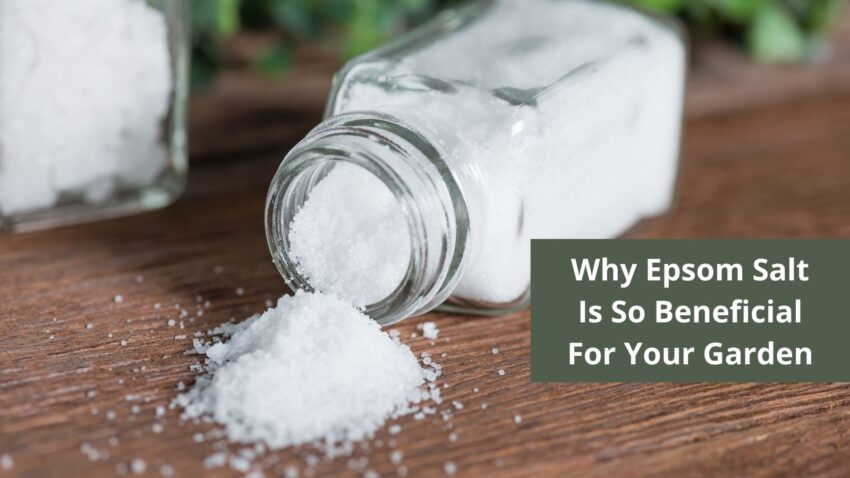Epsom salt is one of the most popular gardening aids because it helps to alleviate many common garden problems. This article will cover common gardening uses for Epsom salt, including how and when to use it in your garden, how to mix Epsom salts with other substances like charcoal and compost, and why you should always be careful where you put your Epsom salt.
What is Epsom salt?
Epsom salt is a naturally occurring mineral that has a wide range of benefits for your garden. It can be used to improve drainage and increase the fertility of your soil. It can also help to control pests and diseases, and promote healthy plant growth.
How does it work?
Epsom salt is beneficial for your garden because it helps to improve the quality of your soil. The salt works by providing essential nutrients that help to promote healthy plant growth. It also helps to loosen compacted soil, making it easier for roots to penetrate and absorb water and nutrients. In addition, Epsom salt can help to control weeds and pests, and it can also be used as a natural fertilizer.
Is it safe to use in the garden?
Epsom salt is a naturally occurring mineral compound of magnesium sulfate. It has been used for centuries as a natural healing remedy and has a wide range of benefits for your health. Epsom salt can also be used in the garden as a natural way to help your plants grow healthy and strong.
There are many benefits to using Epsom salt in the garden. It can help to improve the drainage in your soil, making it easier for your plants to take up nutrients. Epsom salt can also help to reduce the chances of blossom end rot, a common problem in tomatoes and other fruits.
Epsom salt is also believed to help with seed germination and root development. This makes it an ideal way to give your plants a boost when you first start them off in the garden. You can also use Epsom salt as a foliar spray, which means spraying it directly onto the leaves of your plants. This can help to prevent pests and diseases from attacking your plants.
If you’re looking for a natural way to help your garden thrive, then consider using Epsom salt. It’s safe to use around children and pets, and it can really make a difference to the health of your plants.
Knowing the right amounts
When used in gardening, Epsom salt can help improve plant growth, promote root health, and prevent disease. It can also be used to increase the nutrient uptake of plants and to improve the quality of fruits and vegetables.
However, it is important to note that too much Epsom salt can be detrimental to plants. It is recommended to use only 1-2 tablespoons per gallon of water when watering plants. Be sure to dissolved the salt in water before applying it to your plants.
Which plants benefit most?
If you’re wondering which plants will benefit most from Epsom salt, the answer is pretty much all of them! Plants need magnesium to grow, and Epsom salt is an excellent source of magnesium. Just a few tablespoons added to the soil around your plants will give them a boost.
Some plants that are especially known for benefiting from Epsom salt are tomatoes, roses, peppers, and houseplants. But really, any plant that is looking a little lackluster can be helped by a dose of Epsom salt. Try it and see for yourself!
Conclusion
Epsom salt is an incredibly versatile and beneficial product for your garden. It can help improve the quality of your soil, promote healthy plant growth, and deter pests and diseases. And best of all, it’s inexpensive and easy to find! So next time you’re at the store, pick up a bag of Epsom salt and give it a try in your garden. You might just be surprised at how much it can help your plants thrive.

